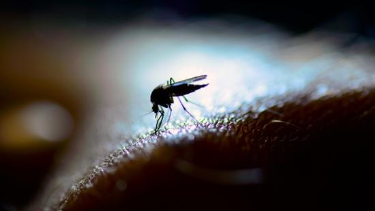Developing a freeze-dried malaria vaccine

Sponsored by

Sponsored by

Griffith researchers are leading world-first human trials for a malaria vaccine as part of the global push to eradicate the deadly disease. Announced in March 2022 on the fifth anniversary of the Malaria Vaccine Project, the Phase 1 clinical trial will test the vaccine, PlasProtecT, in human volunteers in Australia.
The aim is for the vaccine to be freeze-dried for easy transportation to 87 malaria-endemic countries, where an estimated 200 million cases each year result in more than 600,000 deaths, mostly in children under five. One child dies from malaria every two minutes in Africa alone.
Malaria is a mosquito-borne infectious disease caused by Plasmodium parasites. And while strategies exist to control the disease and limit its spread, these are becoming less reliable as resistance to insecticides and anti-malarial drugs increases.
In response, researchers developed a whole parasite vaccine that targets the stage of the malaria parasite found in the blood.
Lead researcher Dr Danielle Stanisic says the vaccine incorporates killed blood-stage malaria parasites, lipids and additional synthetic compounds, which enhance the vaccine’s protective immune response.
“In pre-clinical studies, we showed that our vaccine induces a strong protection against the parasite by stimulating the immune system’s cell army – T cells and inflammatory cytokines – that help kill the parasites.
“In what we believe to be the first of its kind for a whole parasite vaccine, it can be freeze-dried into a powder without losing its effectiveness.
“This will facilitate easy deployment into the field in malaria-endemic countries,” she says.
Co-research lead Professor Michael Good AO said a highly effective malaria vaccine is urgently needed to reduce disease and death and move towards the ultimate goal of
‘By including the whole blood-stage parasite in the vaccine, a broad range of parasite antigens are presented to the immune system, including antigens that are common between different parasite strains.
“This means that the whole parasite vaccine approach should induce a broad protective immune response against the multitude of parasite strains circulating in the field,’’ Dr Good says.
Once the Australian human clinical trials to evaluate the vaccine are complete it will be ready for evaluation overseas, and on track to save millions of lives.
Original Griffith News: https://news.griffith.edu.au/2022/03/23/griffith-university-researchers-lead-human-trials-for-malaria-vaccine/